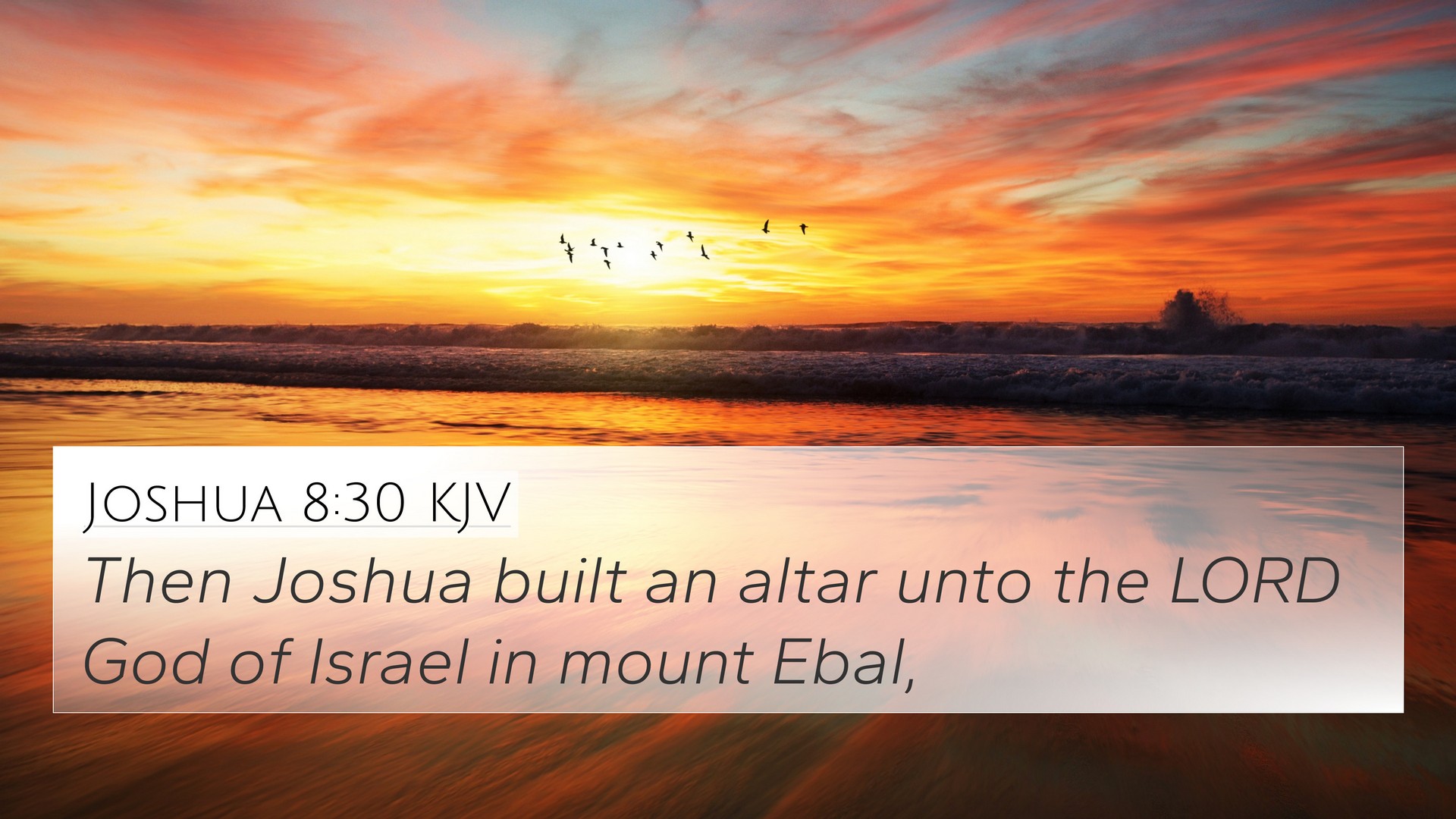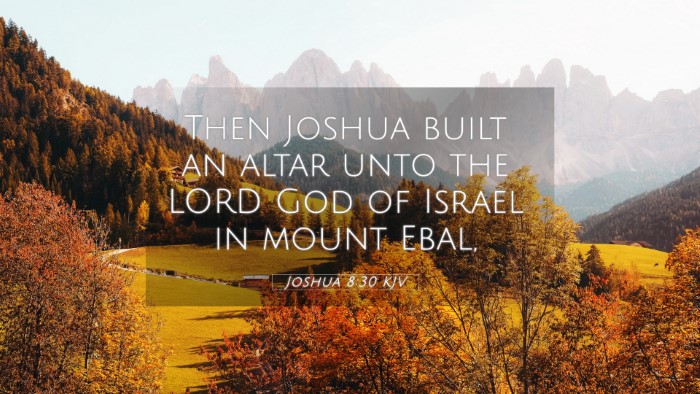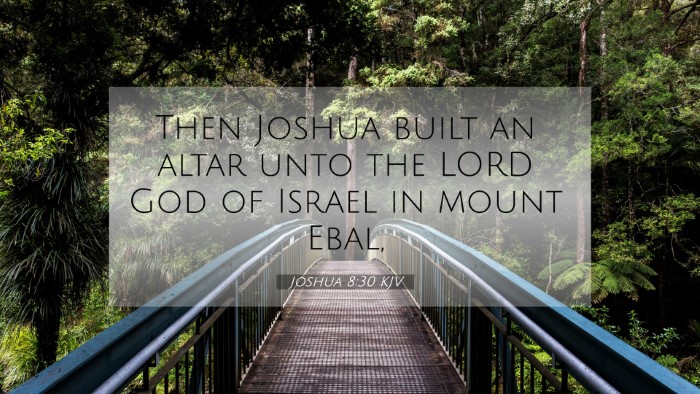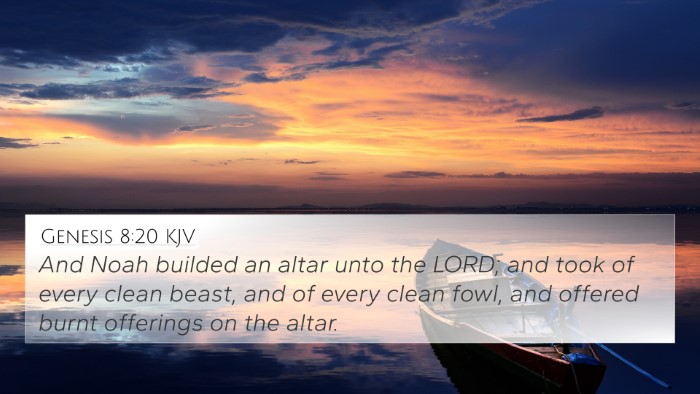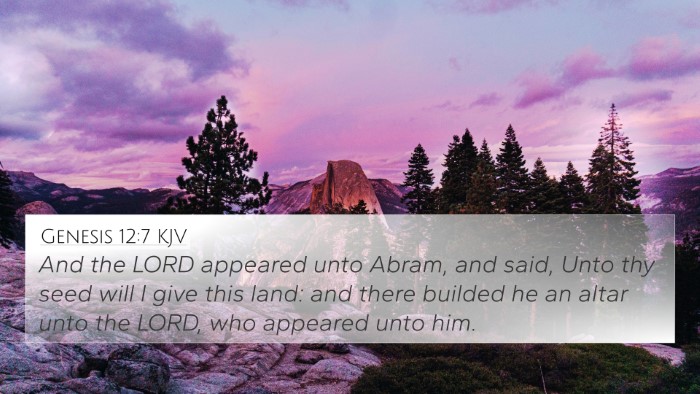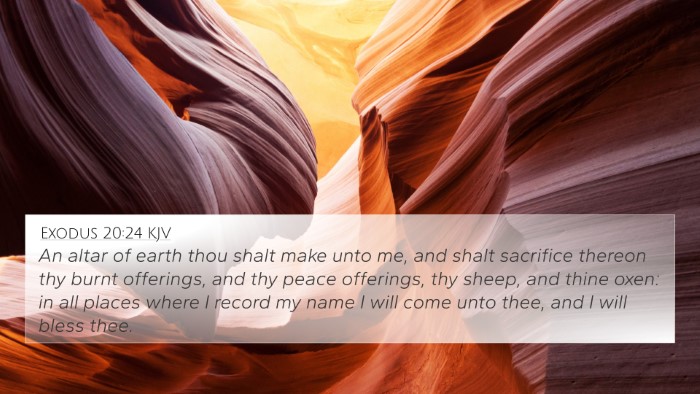Summary and Meaning
This verse captures a significant moment in the life of Joshua and the Israelites as they fulfill the command given to them by Moses to build an altar on Mount Ebal. Here are the insights from various public domain commentaries:
Matthew Henry’s Commentary
Matthew Henry emphasizes the importance of obedience to God's commands in this act of building an altar. He notes that it showcases Joshua's leadership and commitment to following the instructions given by God through Moses. The altar serves as a symbol of gratitude and remembrance of God's covenant with Israel, reinforcing their identity as God's chosen people.
Albert Barnes’ Commentary
Albert Barnes highlights the geographical and spiritual significance of Mount Ebal. He explains that it represents the mountain of curses according to the Law, contrasting with Mount Gerizim, which symbolizes blessings. By constructing an altar there, Joshua acknowledges both the blessings and judgments of the covenant, reinforcing the seriousness of Israel's relationship with God.
Adam Clarke’s Commentary
Adam Clarke provides a detailed analysis of the implications of the altar's construction. He points out that this act was not merely ceremonial; it was intended as a public declaration of faith and a turning point for the Israelites, reminding them of their obligations under the covenant. Clarke also connects this event to the larger narrative of Israel's spiritual journey.
Significance of the Altar
The altar built by Joshua at Mount Ebal holds great theological and historical significance:
- Symbol of Worship: The altar represents the Israelites’ desire to honor and worship the Lord, establishing a central point for sacrifices.
- Commemoration of God’s Faithfulness: It serves as a reminder of God’s promises and the covenant established with His people.
- Teaching Moment: The event signifies the importance of teaching future generations about their history and relationship with God.
Bible Cross-References
To deepen the understanding of Joshua 8:30, consider the following related Bible verses:
- Deuteronomy 27:4-8: Moses instructed the Israelites to build an altar on Mount Ebal.
- Joshua 8:1-2: God commands Joshua not to fear and to carry out the plan against Ai.
- Exodus 20:24: Instructions for building altars are provided here, emphasizing their significance.
- Deuteronomy 11:29: The connection between blessing and cursing is reiterated, highlighting the dual nature of the altar.
- Joshua 24:26: This reinforces the importance of writing down God's covenant duties.
- Hebrews 13:10: Discusses the significance of altars in the context of worship.
- 1 Kings 18:30-32: Elijah’s act of repairing the altar during his confrontation with the prophets of Baal resonates with Joshua’s act.
Exploring the Connections Between Bible Verses
This verse serves as an excellent starting point for understanding the links between various scriptures and themes:
- Thematic Connections: The connection between covenant, worship, and remembrance is a recurring theme throughout the Bible.
- Inter-Biblical Dialogue: Joshua’s altar acts as dialogue with previous and later biblical texts emphasizing God’s covenant and the importance of worship.
- Bible Concordance: Tools for cross-referencing can help identify other scriptures that discuss altars, worship, and covenant relationships.
Cross-Referencing Biblical Texts
Utilizing a Bible cross-reference guide can provide deeper insights into related scriptures, enhancing the study experience and revealing deeper biblical truths. Here are some methods for effective cross-reference:
- Identify themes: Focus on the major themes in Joshua 8:30 and trace them through Scripture.
- Comparative analyses: Look for parallels in events involving altars, covenants, and worship throughout both the Old and New Testaments.
- Utilize Bible references: Leverage concordances to find verses that relate to worship and altars and examine their contexts.
Conclusion
Joshua 8:30 is a multifaceted verse that invites readers to reflect on themes of obedience, worship, and covenant in their spiritual lives. By studying this verse in conjunction with others, one can gain a comprehensive view of God’s relationship with His people throughout the Scriptures, thus enhancing understanding and fostering a more profound faith journey.
